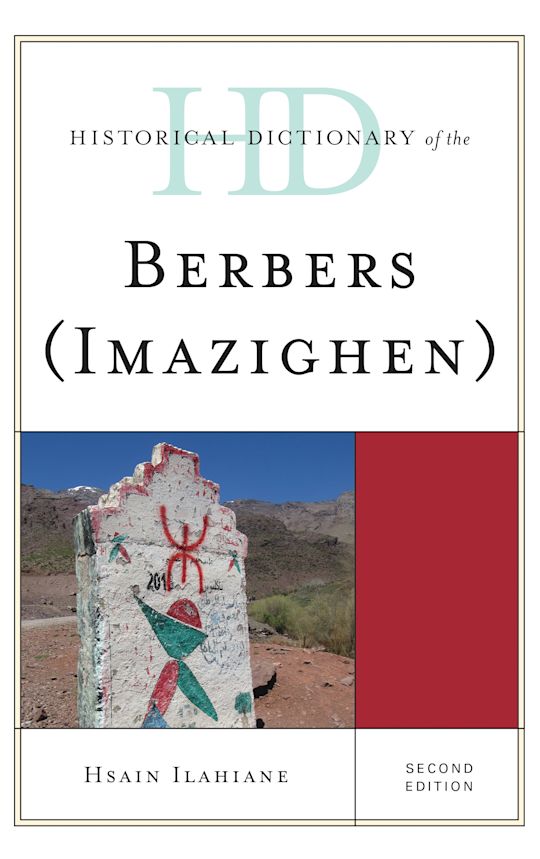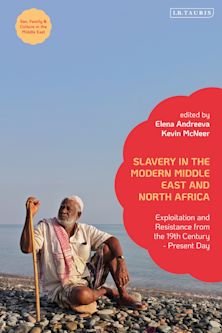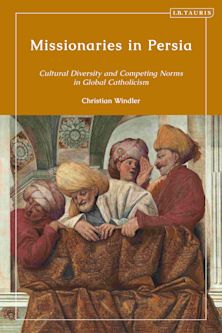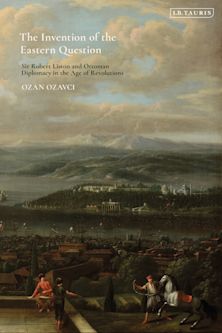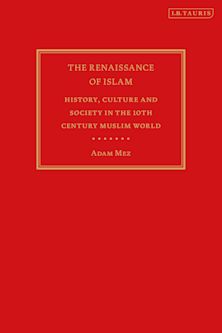- Home
- ACADEMIC
- History
- Middle Eastern History
- Historical Dictionary of the Berbers (Imazighen)
You must sign in to add this item to your wishlist. Please sign in or create an account
Description
Berbers, also known as Imazighen, are the ancient inhabitants of North Africa, but rarely have they formed an actual kingdom or separate nation state. Ranging anywhere between 15-50 million, depending on how they are classified, the Berbers have influenced the culture and religion of Roman North Africa and played key roles in the spread of Islam and its culture in North Africa, Spain, and Sub-Saharan Africa. Taken together, these dynamics have over time converted to redefine the field of Berber identity and its socio-political representations and symbols, making it an even more important issue in the 21st century.
This second edition of Historical Dictionary of the Berbers contains a chronology, an introduction, appendixes, and an extensive bibliography. The dictionary section has over 200 cross-referenced entries on important personalities, places, events, institutions, and aspects of culture, society, economy, and politics. This book is an excellent resource for students, researchers, and anyone wanting to know more about the Berbers.
Table of Contents
Preface
Acronyms and Abbreviations
Chronology
Introduction
The DICTIONARY
Appendix A: Ruling Chronologies of Berber (Amazigh) Dynasties
Appendix B: Maps
Appendix C: Berber (Tifinagh) Alphabet
Appendix D: Calendar months of the Aït Atta of Southern Morocco, 1994-1995
Appendix E: Divisions of the Day, Night, Week, and Year
Appendix F: Week Days in Tamazight developed by the Académie Berbère
Appendix G: Prayer Names in Tamazight in Ahaggar, Mzab, Ghadames, Ghat, Gourara, Souss, Ouargla, and Tafilalet.
Appendix H: List of Some Known Amazigh Deities
Appendix I: List of Amazigh Numerals
Appendix J: Names of Hand Parts in Tamazight (Aït Atta)
Appendix K: Music and Culture Festivals and Films
Bibliography
About the Author
Product details
| Published | Mar 27 2017 |
|---|---|
| Format | Ebook (PDF) |
| Edition | 2nd |
| Extent | 1 |
| ISBN | 9798216225218 |
| Imprint | Rowman & Littlefield |
| Illustrations | 21 maps; 20 tables; 2 graphs |
| Series | Historical Dictionaries of Peoples and Cultures |
| Publisher | Bloomsbury Publishing |
About the contributors
Reviews
-
Commonly called Berbers in English, the original inhabitants of North Africa refer to themselves as Imazighen, meaning ‘free people.’ Having been of consequence to nearly every major Mediterranean empire since the ancient Egyptians, the Berbers have a long but often understudied history and presently are relegated to minority status in the numerous modern countries they inhabit. This work delves into the important people, places, events, and other aspects of Berber politics, culture, and religion across the centuries. The second edition comes 11 years after the first, and the author, anthropologist Ilahiane (Iowa State Univ.), has added 139 entries and expanded and/or revised many of the previous ones. Furthermore, he added several new appendixes to assist in contextualizing Berber history, language, culture, and religion. Other features include more than 20 maps, a chronology, and a nearly exhaustive bibliography that comprises roughly a third of the book. The Berbers' struggle for cultural rights and equality has been resurgent in recent years, making gains in North Africa since the Arab Spring, and this edition covers these events. This work is highly recommended for collections without earlier versions, and the substantive additions make it worthy of consideration for collections that possess the first edition.
Summing Up: Highly recommended. Undergraduates and above; general readers.Choice Reviews
-
Like the first edition (and most other dictionaries in this series), its strength lies in providing concise overviews of the entries it lists. Of course each entry can be expanded into a much larger and fuller entry, but that is not this work’s intent. Instead its entries are heavily cross-referenced, and it provides an extensive thematic bibliography for readers interested in further research. Since the previous edition, several new entries (roughly a third of the new edition) have been added, existing entries have been rewritten for clarity, and the appendix has been expanded. The chronology and list of abbreviations have been enlarged to reflect changes since the first edition. While the bibliography of the first edition was impressive, the second edition adds many more references for scholars to consult. The dictionary is still directed to the nonspecialist, with the introductory essay and appendixes helping to frame the work.
American Reference Books Annual

ONLINE RESOURCES
Bloomsbury Collections
This book is available on Bloomsbury Collections where your library has access.









